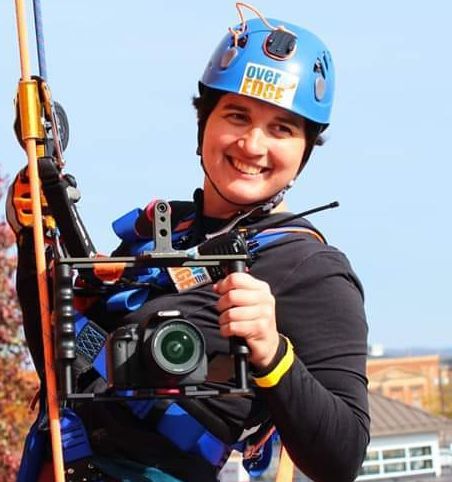EDITOR’S NOTE: This is the final piece of a three-part series that provides an in-depth look at the in-roads of sex trafficking in Lycoming County, the easy access provided by Route 15 and resources for youth trafficking victims.
WILLIAMSPORT – As an adult survivor of sex trafficking, Lynaugh Bobst found it hard to find resources that could help her.
At 12 years old, Bobst recalls talking to her school guidance counselor, her one and only session.
“I’m hurting myself and I don’t know why,” Bobst recalled saying. “I need help. I need help. I need help.”
Bobst’s mother was contacted and asked to set up one free counseling session for her daughter.
After some discussion, the counselor asked, “Honey, were you sexually abused?”
Bobst didn’t know how to respond. Thinking back now, she says she had no idea what sex abuse or sex trafficking was.
But she left the session, got into the car with her mom, turned to her and said, ‘She asked me if I was sexually abused, and I don’t know why but I feel really weird.’ ”
Identifying sex trafficking victims:
Tired all the time
Dressing differently
Older boyfriend
New Jewelry
Tattoo: Bar code or pimp’s name
Keeps strange schedule
Physical abuse
Drug use
SOURCE: oASIS OF hOPE
From a very young age, Bobst’s mother had been trafficking her, often for drugs. Growing up in a number of homes throughout the Williamsport area, including South Williamsport, Newberry and Montoursville, Bobst found it hard to feel like she could get out of her situation.
“I did tell the school, to the best of my ability as a pre-teen, ‘something’s wrong,’ ” Bobst said. “You’re not developmentally prepared to understand and address what’s happening to you.”
Between 100,000 and 300,000 U.S. citizens are trafficked within the country each year, and most of them are minors, according to a 2014 report by the U.S. Department of Health and Human Services.
Diminishing minor homes
Resources for youth victims of sex trafficking continue to dwindle. These youth often act out in angry and aggressive ways, they are difficult to deal with and have deep psychological trauma that goes beyond other juvenile offenders, according to Alana Opdahl, program director of Oasis of Hope, a local safe house for victims of sex trafficking.
Oasis of Hope originally was founded as a home for youth who had been sex trafficked. But it recently removed that option and now works exclusively with adult women.
The decision was a difficult one, but it’s a trend that is happening across the country, Opdahl said.
“State regulations are not up to date with what you need in order to have good service and best care practices for these clients,” Opdahl said. “They’re trying to treat it similar to foster care, and it’s just not the same.”
A partnership is needed between people who work directly with the youth and state policy makers, Opdahl said.
“The kids need these homes and they need these kind of places to help them through,” she said.
Schools and social media
Other local efforts are being made to reach children involved in trafficking, or those susceptible to it.
Social media has made it much easier for youth to be contacted by traffickers, said Heather Shnyder, education specialist at Transitions of Pa in Lewisburg.
Transitions is working to educate school teachers, and students on what to look for in their students or among their friends.
Youth in schools also are a key group that the Lycoming County Human Trafficking Outreach Team is working to reach, according to Adam Weltheroth, chairperson of the team. He said a primary method traffickers use is social media as a way to find and lure victims.
Prime targets are middle school kids who are coming into the new freedom of the social media world.
“It’s important that we don’t just throw them to the wolves of technology… but we educate them to the dangers that are out there and the appropriate ways to use everything at their fingertips,” Welteroth said.
Welteroth urged youth to make sure they know who it is they are talking to online, that they have met them before. He also cautioned against providing personal details or agreeing to meet someone alone.
An adult’s responsibility
Welteroth also called on parents to keep a close eye on what their kids are doing and who they are spending time with or talking to online.
As an adult, Bobst said she feels a responsibility to speak out for minors and make sure they have access to resources she never felt she had.
Bobst is a board member for Silent No More, a local non-profit founded by Psychologist Michael Gillum, who represented Andrew Fisher, a victim of Jerry Sandusky. Avenues should be made to enable child victims to be identified “and get them the help they need sooner.”
“That’s why it’s so important for adults in the community take a minute to say ‘Is this strange?’ ‘Could there be something here?’ ‘I need to make a call’ ”


